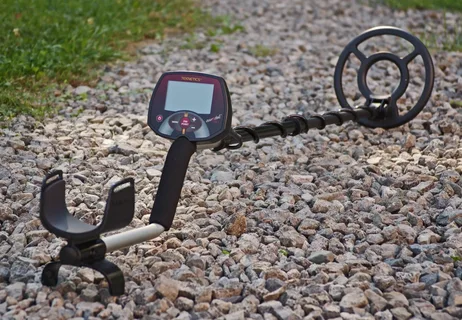The Vital Role of GPS Technology in Excavation Machinery
The importance of GPS technology in excavation machinery معدات تنقيب 24 (22/11) cannot be overstated. In today’s modern construction industry, GPS technology plays a vital role in the efficiency, accuracy, and safety of excavation processes. With the ability to provide real-time positioning and precise navigation, GPS technology has revolutionized the way excavation machinery operates, ultimately leading to improved productivity and cost-effectiveness. This technology has become an indispensable tool for construction companies and contractors, enabling them to optimize their operations and achieve remarkable results. In this article, we will explore the vital role of GPS technology in excavation machinery, and the significant impact it has on the construction industry.
ٍSee Also: Essential Equipment for Trenching and Pipe Laying Excavation Projects
GPS technology plays a crucial role in excavation machinery by providing real-time positioning and mapping capabilities. This technology allows operators to accurately track and navigate the machinery, ensuring precise and efficient excavation processes. Additionally, GPS technology enables the collection of valuable data regarding ground conditions and excavation progress, leading to improved safety and productivity on construction sites. Furthermore, GPS-equipped excavation machinery can also contribute to cost savings and environmental benefits by minimizing unnecessary soil disturbance and optimizing the usage of resources. Overall, the integration of GPS technology in excavation machinery has significantly enhanced the effectiveness and precision of excavation operations.
Enhancing Efficiency: The Role of GPS in Excavation Machinery

Enhancing Efficiency: The Role of GPS in Excavation Machinery
GPS technology has revolutionized the excavation industry by significantly enhancing the efficiency of machinery. By utilizing GPS positioning, excavation equipment such as excavators, bulldozers, and graders can precisely navigate and operate within designated areas, increasing accuracy and reducing time and fuel consumption.
GPS-equipped machinery allows operators to easily follow pre-programmed excavation plans, resulting in precise digging, grading, and trenching. This not only improves the quality of the work but also minimizes rework and material wastage.
Additionally, GPS technology enables real-time tracking of the equipment’s location and performance, allowing for the monitoring of productivity and the identification of potential issues or inefficiencies. This data can be used to optimize equipment usage, streamline workflows, and ultimately improve overall project performance.
In conclusion, the integration of GPS technology in excavation machinery has proven to be a game-changer in the industry, delivering significant advancements in efficiency, precision, and productivity. As technology continues to evolve, the role of GPS in excavation machinery is expected to further evolve, offering even more advanced capabilities and benefits.
Revolutionizing Construction: The Impact of GPS on Excavators

Revolutionizing Construction: The Impact of GPS on Excavators discusses how the integration of GPS technology has transformed traditional excavation processes. The use of GPS on excavators allows for increased precision, efficiency, and accuracy in excavation projects, leading to cost savings and improved productivity. This technology enables excavators to operate with minimal rework and reduced risk of errors, thereby revolutionizing the construction industry.
Maximizing Precision: Why GPS is Essential for Excavation Equipment

Maximizing precision in excavation equipment is crucial for ensuring accurate and efficient operations on construction sites. GPS technology plays a vital role in achieving this precision by providing real-time positioning data to the equipment. This allows for more accurate excavation, grading, and site prep, ultimately saving time and reducing costs. GPS also enables operators to work more safely and effectively, minimizing errors and rework. Overall, GPS is essential for maximizing precision in excavation equipment, leading to improved efficiency and productivity on construction sites.
Navigating the Future: The Advantages of GPS in Excavation Machinery

Navigating the Future: The Advantages of GPS in Excavation Machinery explores the ways in which GPS technology has revolutionized the excavation industry. This technology allows for more precise and efficient digging, grading, and trenching, leading to reduced project timelines and cost savings. Additionally, GPS-equipped machinery enables operators to work more safely and accurately, minimizing the risk of errors and accidents. The article discusses the various features and benefits of GPS in excavation machinery and highlights its growing importance in the construction and earthworks sector.
Digging Deeper: The Significance of GPS Technology in Excavators
ٍSee Also: Revolutionizing Mining Industry with Advanced Gold Mining Machinery
Digging Deeper: The Significance of GPS Technology in Excavators explores how GPS technology has revolutionized the excavation industry by improving efficiency, accuracy, and safety. The article discusses the various ways in which GPS technology is integrated into excavators, including real-time tracking, precise digging and grading, and automated guidance systems. It also delves into the benefits of using GPS technology, such as reducing fuel consumption, minimizing errors, and increasing productivity. Additionally, the article examines the future potential of GPS technology in excavators, as the industry continues to embrace advancements in digital construction.
The Power of Precision: How GPS is Transforming Excavation
The Power of Precision: How GPS is Transforming Excavation is a book that explores the impact of GPS technology on the excavation industry. It delves into how GPS has revolutionized the way excavators operate, providing greater accuracy and efficiency in their work. The book discusses the various ways in which GPS is utilized in excavation, including site preparation, grading, and trenching. Additionally, it delves into the benefits of GPS in terms of cost savings, improved safety, and minimizing environmental impact. Overall, The Power of Precision highlights the significant role that GPS technology plays in transforming the excavation process.
Unearthing Innovation: The Role of GPS in Modern Excavation
Unearthing Innovation: The Role of GPS in Modern Excavation discusses the use of GPS technology in excavation projects. The article explores how GPS has revolutionized the excavation industry by providing precise location tracking, mapping, and measurement capabilities. It also highlights the various benefits of using GPS in excavation, including improved efficiency, accuracy, and safety. The article further delves into the specific applications of GPS in excavation, such as automated machine control and real-time data sharing. Overall, it provides a comprehensive overview of how GPS has become an indispensable tool for modern excavation practices.
The Evolution of Excavation Machinery: The Influence of GPS
ٍSee Also: Essential Marine Toolkits for Vessel Maintenance at Sea
The evolution of excavation machinery has been heavily influenced by the development and integration of GPS technology. GPS has revolutionized the way excavators operate by providing precise positioning, navigation, and monitoring capabilities. This has enabled more accurate and efficient excavation, leading to increased productivity and lower operating costs. GPS also allows for real-time tracking of excavation machinery, improving safety and security on job sites. Overall, the influence of GPS on excavation machinery has significantly advanced the construction industry, driving higher levels of performance and reliability.
Navigating Construction Sites: The Importance of GPS in Excavators
Navigating construction sites can be challenging, especially for excavators working in large, complex areas. Having a GPS system in an excavator is crucial for ensuring efficient and accurate digging, trenching, and grading. GPS technology allows operators to navigate the site with precision, consistently hitting their target depths and locations. This reduces the risk of errors, enhances safety, and ultimately saves time and money on construction projects. Additionally, GPS-equipped excavators can also provide valuable data for project managers, helping to improve overall site productivity and performance.
Moving Earth: The Impact of GPS Technology on Excavation Equipment
Moving Earth: The Impact of GPS Technology on Excavation Equipment explores the ways in which GPS technology has revolutionized the way earth-moving machinery operates. By using GPS, operators are able to accurately pinpoint locations, measure distances, and ensure precision in excavation and grading processes. This technology has significantly improved efficiency and productivity in the construction industry, leading to cost savings and higher quality results. The book delves into the various applications of GPS in excavation equipment and highlights the benefits it brings to the construction field.



التعليقات مغلقة.